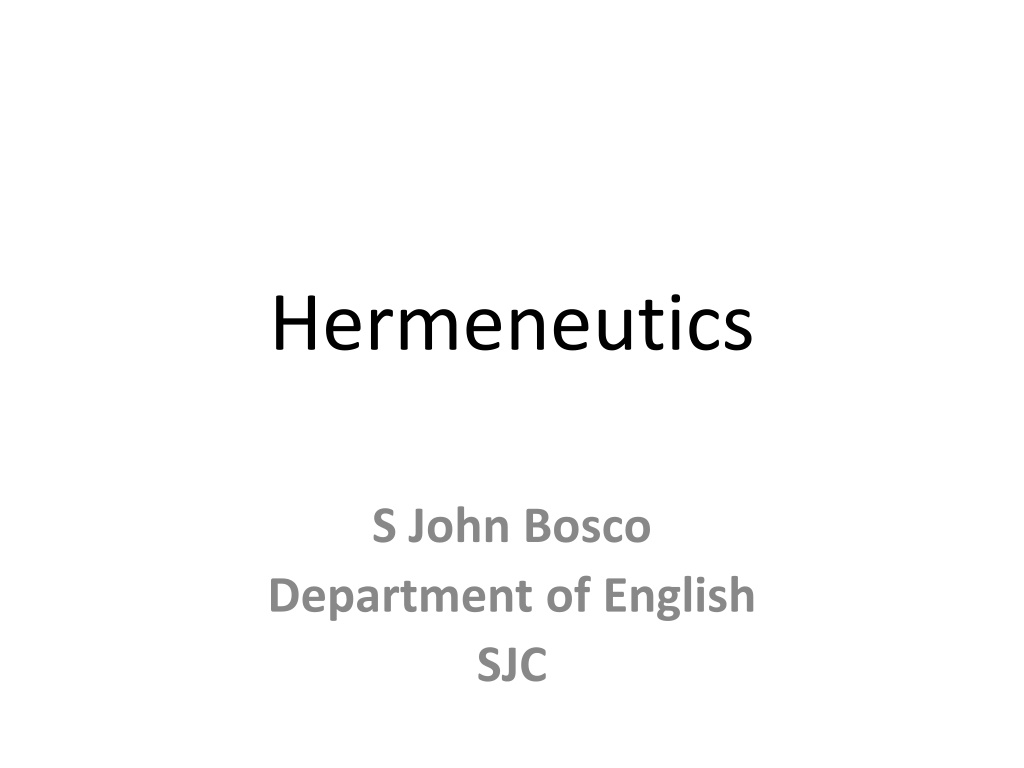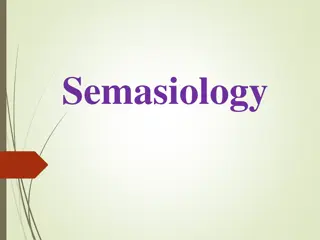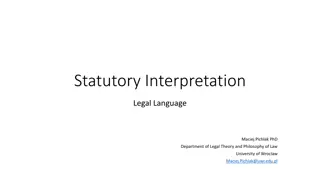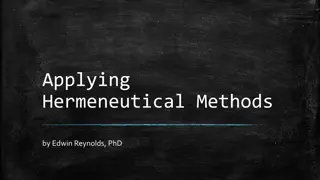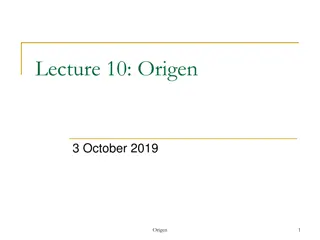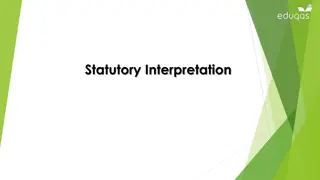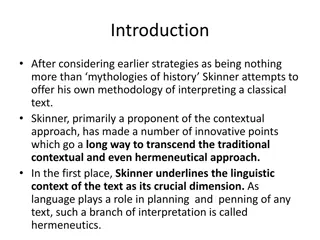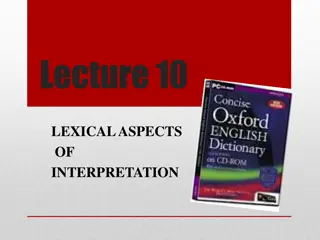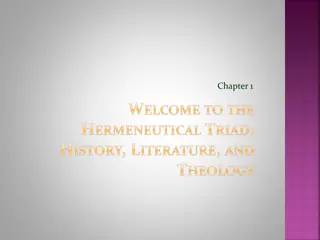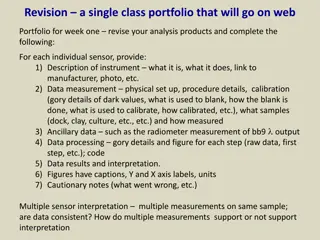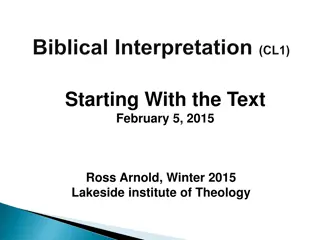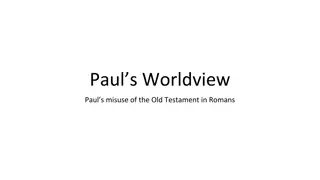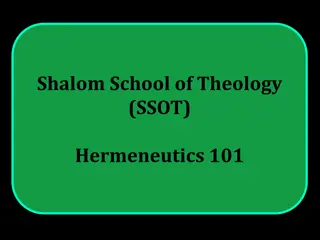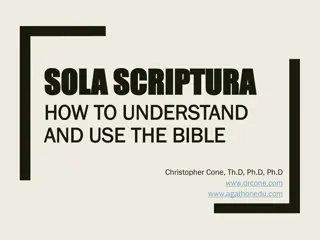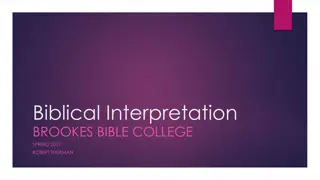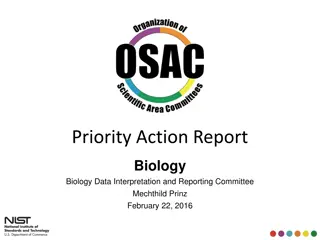Understanding Hermeneutics: Exploring Interpretation and Meaning
Hermeneutics, a vital part of theology and philosophy, delves into understanding text and interpretation. Influenced by prominent thinkers like Heidegger and Ricoeur, it emphasizes the historical encounter and personal experience within the world. The concept of hermeneutical circle and the two areas of understanding aid in comprehending the depth of interpretation and significance of texts. Explore the history of hermeneutics, its relation to religion, philosophy, phenomenology, and reader-response theory. Hermes, Plato, and Aristotle contribute to the discussion on interpretation, translation, and explanation.
Download Presentation

Please find below an Image/Link to download the presentation.
The content on the website is provided AS IS for your information and personal use only. It may not be sold, licensed, or shared on other websites without obtaining consent from the author. Download presentation by click this link. If you encounter any issues during the download, it is possible that the publisher has removed the file from their server.
E N D
Presentation Transcript
Hermeneutics S John Bosco Department of English SJC
Heidegger Wilhelm Dilthey Schlelermacher Hans- Georg GadamerGerman Philosopher Paul Ricoeur German Philosopher German Historian German Theologian French Philosopher
Influenced by German Phenomenology and existential Philosophy
Hermeneutical circle The text Explanation-understanding(prefiguration) Appropriation(refiguation)
a part of theology concerned with death, judgement, soul eschatology
Understanding is an historical encounter which calls forth personal experience of being there in the world
2 areas of understanding The question of what is involved in the event of understanding a text The question of what understanding itself is
History of hermeneutics Hermeneutics and philosophy Hermeneutics and religion Hermeneutics and phenomenology Hermeneutics and reader response theory
Hermes(message) Plato Aristotle
Interpretation To say, explain, translate
Her concerned with problems, methods, purpose of interpretation History, culture, cultural diversity, language, distance between author and the interpreter it is a science rules and principles began in the 15thcentury, humanist education
General Hermeneutics The theory that analyzes interpretation, specifically, how texts communicate, how meaning is derived from texts and/or their authors, and what it is that people do when they interpret a text Biblical Hermeneutics The discipline of interpreting the Bible which includes exegesis (the discovery of the original meaning) and the contextualization of meaning to Christian theology and practice
Words have meaning and ideas have consequences
Her. Is the theory of text interpretation Bible, Wisdom lit, Philo text Modern her. Verbal and Non Verbal When Good Questions are asked, new knowl, can be produced Philo. Her. Is not a method of understanding , but rather a process of understanding Understanding is not a reproductive process bt a productive process
Biblical Hermeneutics: Two Worlds Textual world Reader s world
Process of interpretation is applicable to practice of understanding Wilhelm Dilthey, Ger, Philo, Devloped Friedrich Schleiermacher s idea Hermeneutic circle The reader cant understand any part of the text until the whole is understood, while the whole cant be understood until the parts are understood
The Necessity of Biblical Hermeneutics Every reader is an interpreter. Because the nature of language and communication as inferential Aoccdrnig to a rseearch at Cmabrigde Uinervtisy, it deosn't mttaer in waht oredr the ltteers in a wrod are, the olny iprmoetnt tihng is taht the frist and lsat ltteer be at the rghit pclae. The rset can be a total mses and you can sitll raed it wouthit porbelm. Tihs is bcuseae the huamn mnid deos not raed ervey lteter by istlef, but the wrod as a wlohe.
What is usually spontaneous for us when reading documents in our native language and of our same cultural context necessarily needs to be more consciously addressed when reading ancient texts If theology is to make sense now about the meaning of Jesus Christ whose career took place then, it has in that moment engaged in a transfer of meaning. It has carried out a hermeneutic the question is whether that hermeneutic is to be the object of deliberate theological reflection, or whether it is to be assumed and allowed to operate without the benefit of theological clarification. (Paul J. Achtemeier, An Introduction to the New Hermeneutic)
Dilthey diff. bt understanding and explanation Distin. Bt human sciences ans natural sciences E.D. Hirsch- author s willed meaning Horizon of expectation- generic, cultural, conventional Verbal meaning is stable Matin Heidegger and Hans instist on the historicity and temporality of understanding
Mar. Hna meaning constituting a temporal structure of interpretative understanding, which is already engaged in the activity of inter. Meaning is always codetermined, reader s horizon attempting to fuse with the author An inescapable relativity and indeterminacy s thereby introduced into the notion of interpretation Dasein being there
Hans- argues Inter. Of past lit arises from argument bt past and present Present perspective is associated with past The past can only be grasped thru limited perspective of the present Text Inter. Depends on knowl. Assumption, cultural backdrop, exp and insights of the reader
Her cal methods and ideas have impact on Phenomenology RRT Wolfggang Iser, Stanley Fish Jurgen Hebermas Inter in terms of everyday Lang, than in terms of forms of social life
